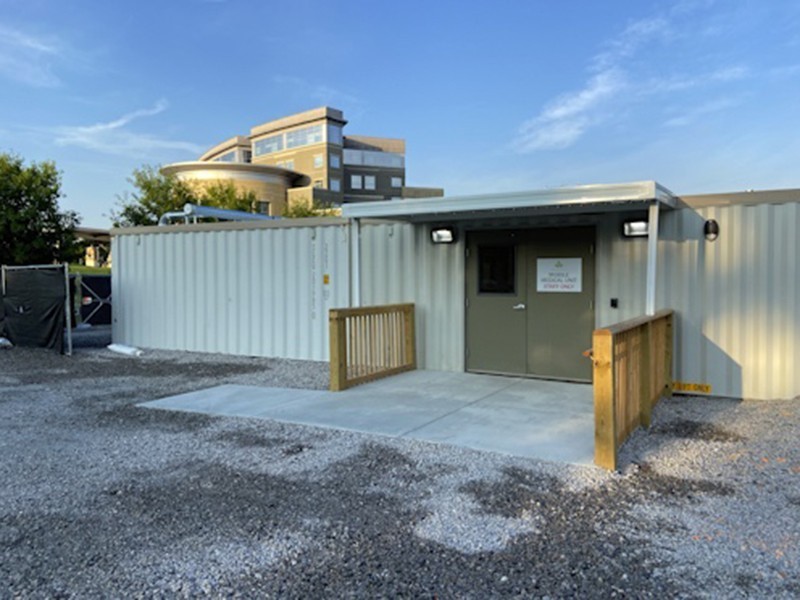A year ago at this time, in the midst of the COVID-19 pandemic, health officials in Georgia were bracing for the aftermath of the Fourth of July holiday.
Gov. Brian Kemp had issued warnings before the 2020 summer holiday, cautioning Georgians to use common sense and avoid celebrations with anyone outside of immediate family members. The Georgia Department of Natural Resources warned that rangers would be on the lookout for crowds of people congregating on boats on area lakes. Communities suspended parades and fireworks events, hoping to prevent large gatherings that could lead to the spread of the virus.
Even so, medical officials knew what could happen if people let their guard down, and Michael Covert, Chief Operating Officer (COO) for Northeast Georgia Health System, said fear became reality as the Hall County community was hit with a second peak of virus cases.
Covert said the hospital system had already survived one peak in hospitalizations in the spring of 2020, and officials had worked for months to make sure staffing was in place to treat patients, as well as spending additional money to locate and purchase personal protective equipment (PPE) for NGHS employees.
He called it "an intense time."
"We were looking at the clinical challenges of care because at that point we were truly only learning about the virus," Covert said. "We were working to convince the community to follow the rules of masking and social distancing and washing their hands...we were limiting the number of visitors [which] created great consternation among those wanting to visit loved ones in the hospital setting. We had cut back on the number of our surgical and procedural cases...we were doing very aggressive COVID testing."
On July 4, 2020, hospitals under the NGHS umbrella were treating 73 COVID patients. By July 31, the number had risen to 176. (The hospital system also experienced a third peak on Jan. 8, 2021 of 355 hospitalized COVID patients.)
"We really were stressed," Covert said. "As you recall, our emergency room had set up additional tents, and whether it was in Gainesville or Braselton, we were having lots of issues with the care of patients. It was a difficult time for those in the community and it was a challenging time for us and how we were going to try to manage those numbers, which we knew were going to continue to increase."
Fast forward to July 2021 and Covert said it is a different world, as he put it.
"Today we're dealing with an average of maybe 15 to 20 cases of COVID patients," Covert said, and he said the hospital system has done a great deal of learning in the past year.
"We have capabilities that we didn't really have at the time [of last year's peak]. You hear now about the drug Remdesivir, or treating people with monoclonal antibodies to be able to help them with their immune systems," Covert said. He said protocols for ventilator use have changed, as well.
The real game-changer, though, according to Covert, is the vaccine. He and other health industry officials continue to push for community members who are unvaccinated to get the shot, especially since the Pfizer and Moderna vaccines appear to be effective against the new Delta variant of the virus. He said NGHS has seen cases of the variant locally.
"What we're learning is those that are now contracting the virus are those that don't have the vaccine," Covert said.
Those who are hospitalized are also young, as opposed to the senior citizen population that was impacted at the onset of the pandemic.
"We've even seen it in teenagers, those 17 and 18-years-old, but mostly 20 to 30," Covert said.
Covert also acknowledged the virus has taken a toll staffing at NGHS facilities.
"The issues we're dealing with more now are those of burnout. I've got a very tired staff here from what we've experienced in the last year, though the commitment that they have is still very, very strong," Covert said.
Even though the hospital has become more open to visitors and has resumed routine surgical procedures, Covert said he and other hospital administrators remain cautious, and he again pointed to the need for more of the population to get vaccinated before more rules are relaxed.

http://accesswdun.com/article/2021/7/1019803/nghs-official-july-2021-a-different-world-after-last-summers-covid-19-peak
